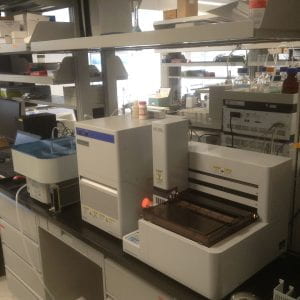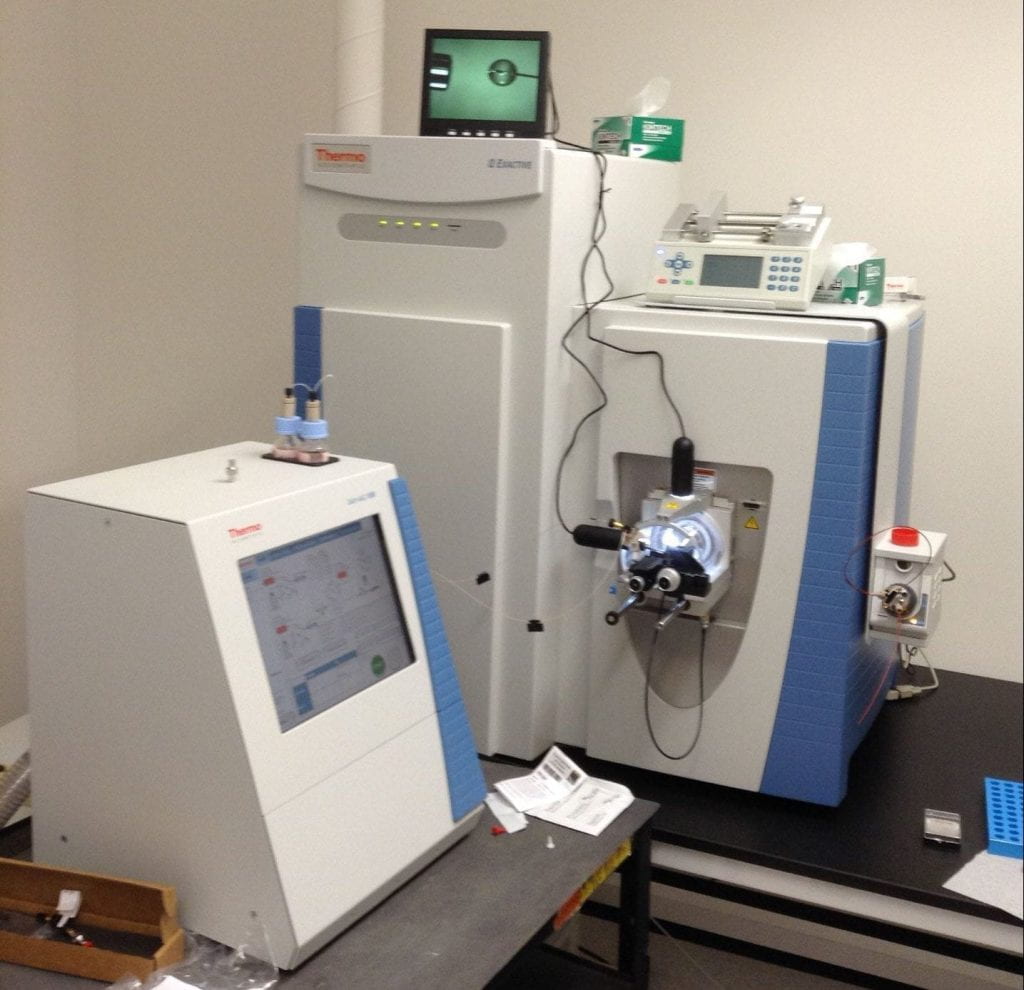Facilities
Our laboratory contains approximately 1,500 square feet of dedicated space. Major equipment includes a: (1) Thermo quadrupole-orbitrap mass spectrometer (QExactive) coupled to a Dionex liquid chromatography system and EQuan autosampler with associated acquisition and analysis software; (2) Thermo variable wavelength UV-Vis detector coupled to a separate Dionex high-performance liquid chromatography system, autosampler, and fraction collector with associated acquisition and analysis software; (3) Thermo Easy nanoLC chromatography and autosampler system; (4) Thermo/Nittoseiko combustion ion chromatography system; (5) MilliQ nanopure water system; (6) three biological safety fume hoods; and (7) two laminar flow hoods. Other minor equipment includes: pH meters, sonication bath, pan balances, microbalances, stir plates, and other typical wet chemistry lab items.
In adjacent laboratories within the School of Civil and Environmental Engineering, we have access to a molecular microbiology tools including PCR and qPCR thermocyclers, plate readers, Raman microscopy, ion chromatography, a total organic carbon analyzer, a total organic nitrogen analyzer, inductively coupled plasma mass spectrometry, and a variety of gas chromatographs coupled to flame ionization, thermal conductivity, and electron capture detectors.
Here are more details about our work-horses:
QExactive High-Resolution Mass Spectrometer
The QExactive (quadrupole-Orbitrap) mass spectrometer is coupled to an Equan Max Plus automated solid phase extraction (SPE) system and a Dionex high-performance liquid chromatography (HPLC) system. We use the QExactive to develop novel methods to assess the occurrence of trace organic contaminants in aquatic environments and to elucidate chemical structures of reaction intermediates and endpoints.
QExactive coupled to an EASY-nanoLC 1000 UHPLC system
We use this system to explore the world of environmental proteomics. We isolate and quantify protein biomarkers that are predictive of biodegradation processes and attempt to identify unknown proteins involved in biotransformation reactions.
UltiMate 3000 HPLC system coupled to a Variable Wavelength UV-Vis Detector and Automated Fraction Collector
We use this system as an analytical tool to measure the concentrations of organic chemicals in aqueous solution and characterize the kinetics of reaction processes. We also use this system as a semi-preparative tool to isolate and collect transformation intermediates or endpoints for subsequent structure elucidation by means of high-resolution mass spectrometry and/or nuclear magnetic resonance (NMR).

Thermo/Nittoseiko combustion ion chromatography system
We use this system to measure total organic fluorine (TOF) in industrial mixtures, wastewater samples, and drinking water samples. We can load liquid samples or activated carbon cartridges loaded with organic fluorine from liquid samples onto the autosampler. The samples are then combusted in the furnace and the evolved fluorine is captured in an adsorption module and then measured by means of ion chromatography.



